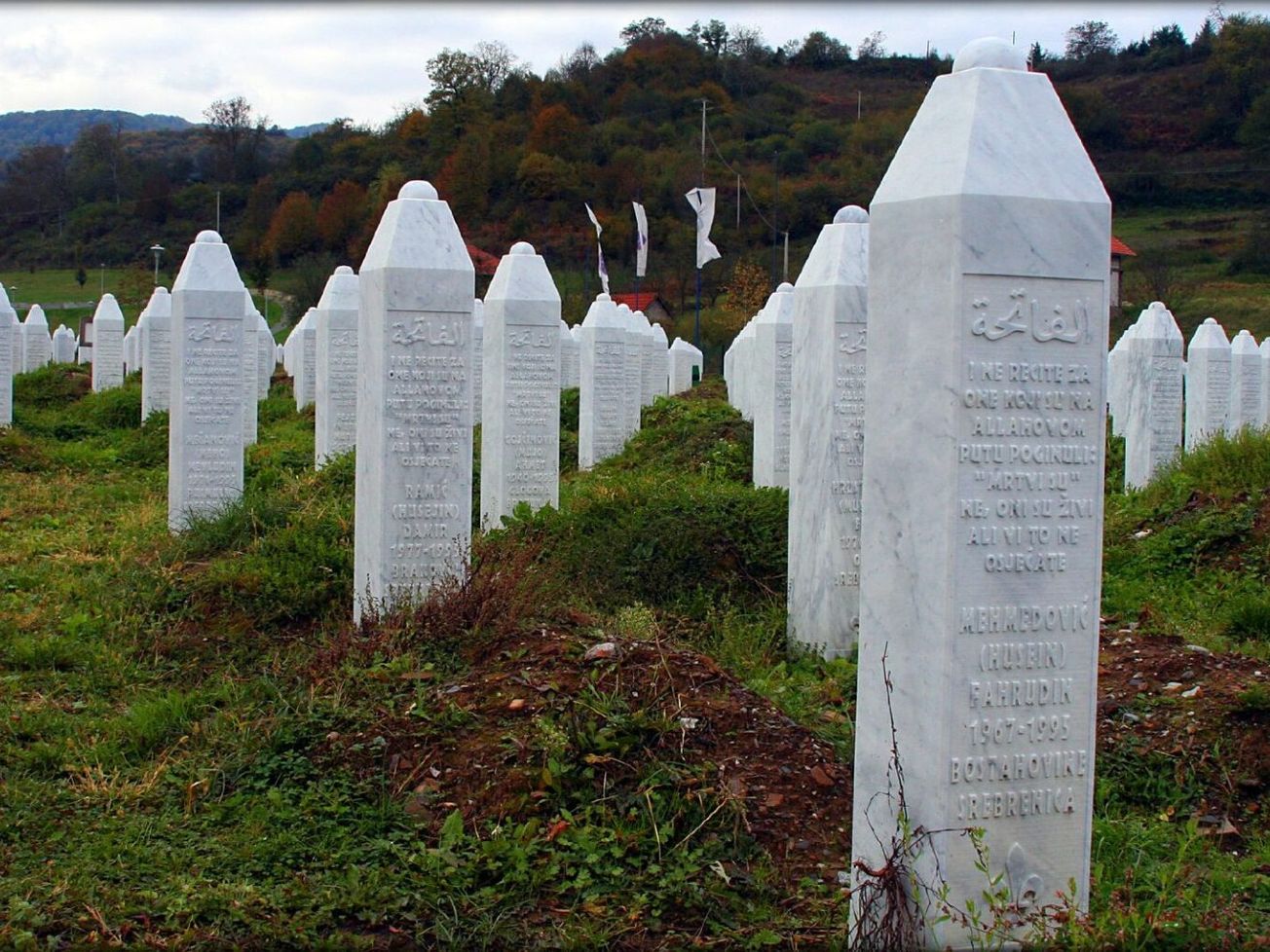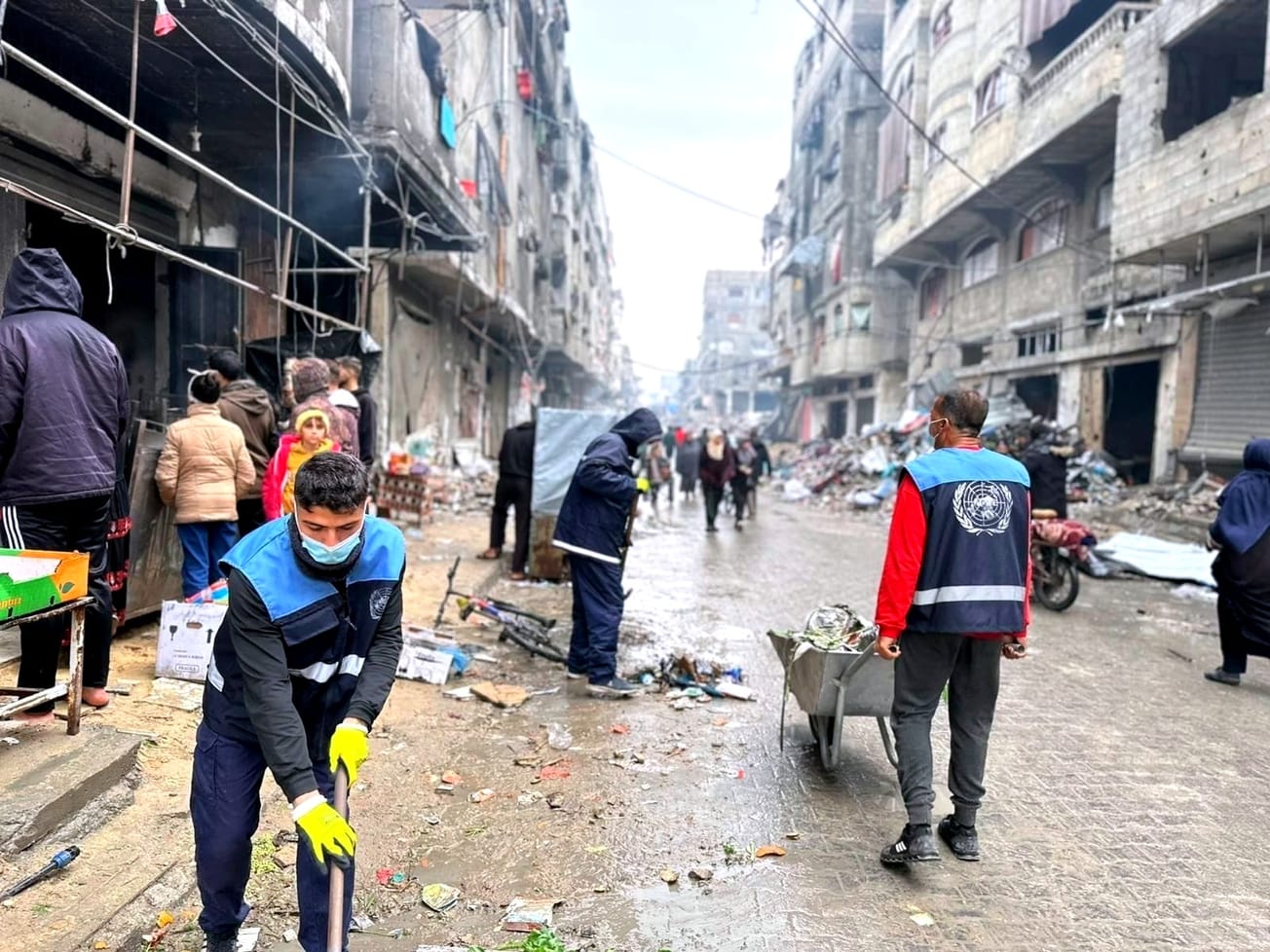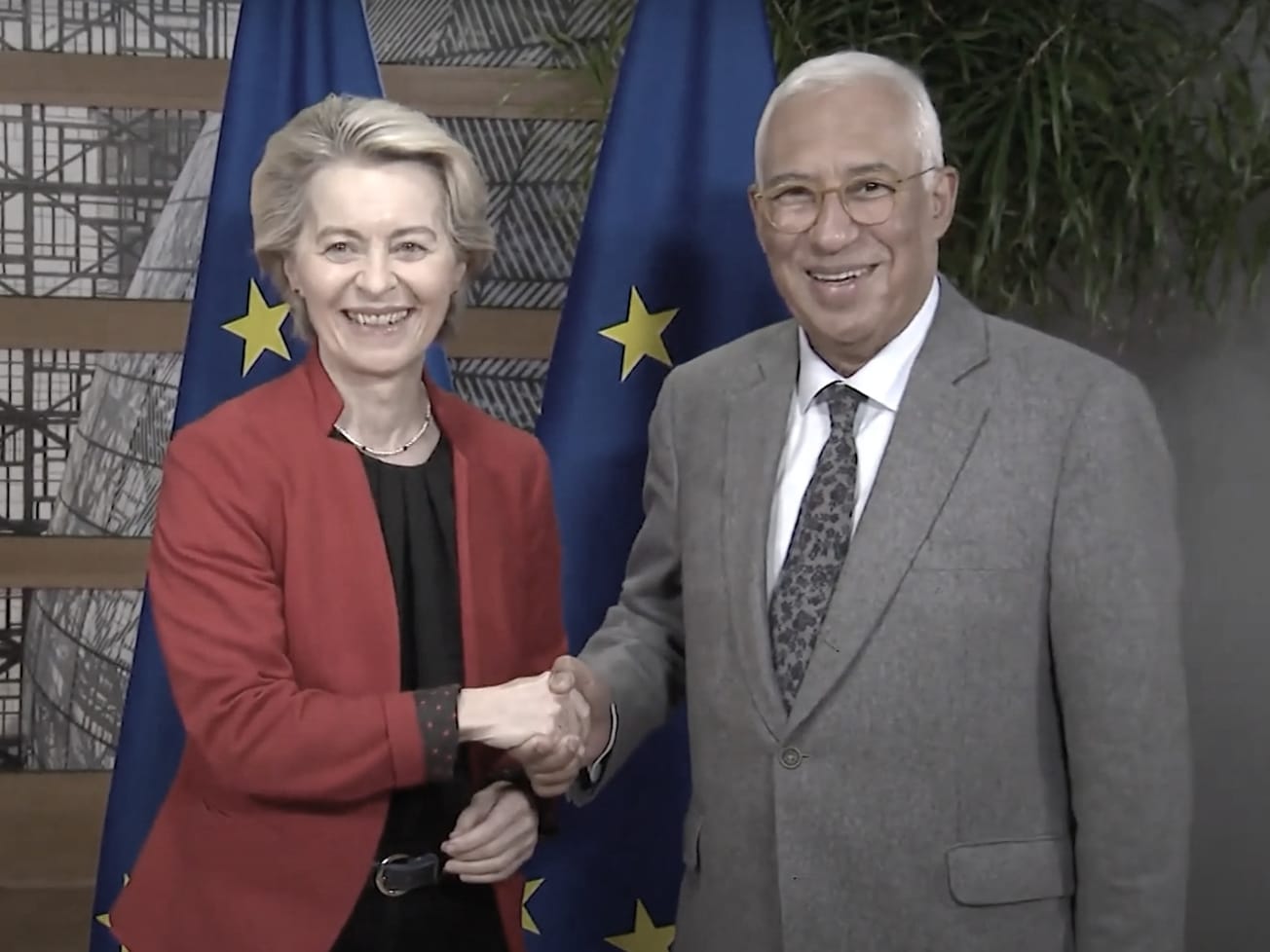Eight Bosnian men and boys killed 25 years ago in Europe's worst atrocity since World War II were laid to rest on Saturday in a cemetery outside Srebrenica, a reminder that justice for genocide victims comes slowly, if at all.
The solemn ceremony, allowing survivors to bury family members' remains identified through DNA testing, marked the 25th anniversary of the Srebrenica massacre, which unfolded towards the end of the war in the former Yugoslavia, when Bosnian Serb forces overran what was supposed to be a United Nations-protected safe haven at Srebrenica and systematically murdered 8,000 Muslim men and boys.









